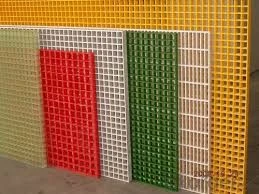
-
 Afrikaans
Afrikaans -
 Albanian
Albanian -
 Amharic
Amharic -
 Arabic
Arabic -
 Armenian
Armenian -
 Azerbaijani
Azerbaijani -
 Basque
Basque -
 Belarusian
Belarusian -
 Bengali
Bengali -
 Bosnian
Bosnian -
 Bulgarian
Bulgarian -
 Catalan
Catalan -
 Cebuano
Cebuano -
 China
China -
 China (Taiwan)
China (Taiwan) -
 Corsican
Corsican -
 Croatian
Croatian -
 Czech
Czech -
 Danish
Danish -
 Dutch
Dutch -
 English
English -
 Esperanto
Esperanto -
 Estonian
Estonian -
 Finnish
Finnish -
 French
French -
 Frisian
Frisian -
 Galician
Galician -
 Georgian
Georgian -
 German
German -
 Greek
Greek -
 Gujarati
Gujarati -
 Haitian Creole
Haitian Creole -
 hausa
hausa -
 hawaiian
hawaiian -
 Hebrew
Hebrew -
 Hindi
Hindi -
 Miao
Miao -
 Hungarian
Hungarian -
 Icelandic
Icelandic -
 igbo
igbo -
 Indonesian
Indonesian -
 irish
irish -
 Italian
Italian -
 Japanese
Japanese -
 Javanese
Javanese -
 Kannada
Kannada -
 kazakh
kazakh -
 Khmer
Khmer -
 Rwandese
Rwandese -
 Korean
Korean -
 Kurdish
Kurdish -
 Kyrgyz
Kyrgyz -
 Lao
Lao -
 Latin
Latin -
 Latvian
Latvian -
 Lithuanian
Lithuanian -
 Luxembourgish
Luxembourgish -
 Macedonian
Macedonian -
 Malgashi
Malgashi -
 Malay
Malay -
 Malayalam
Malayalam -
 Maltese
Maltese -
 Maori
Maori -
 Marathi
Marathi -
 Mongolian
Mongolian -
 Myanmar
Myanmar -
 Nepali
Nepali -
 Norwegian
Norwegian -
 Norwegian
Norwegian -
 Occitan
Occitan -
 Pashto
Pashto -
 Persian
Persian -
 Polish
Polish -
 Portuguese
Portuguese -
 Punjabi
Punjabi -
 Romanian
Romanian -
 Russian
Russian -
 Samoan
Samoan -
 Scottish Gaelic
Scottish Gaelic -
 Serbian
Serbian -
 Sesotho
Sesotho -
 Shona
Shona -
 Sindhi
Sindhi -
 Sinhala
Sinhala -
 Slovak
Slovak -
 Slovenian
Slovenian -
 Somali
Somali -
 Spanish
Spanish -
 Sundanese
Sundanese -
 Swahili
Swahili -
 Swedish
Swedish -
 Tagalog
Tagalog -
 Tajik
Tajik -
 Tamil
Tamil -
 Tatar
Tatar -
 Telugu
Telugu -
 Thai
Thai -
 Turkish
Turkish -
 Turkmen
Turkmen -
 Ukrainian
Ukrainian -
 Urdu
Urdu -
 Uighur
Uighur -
 Uzbek
Uzbek -
 Vietnamese
Vietnamese -
 Welsh
Welsh -
 Bantu
Bantu -
 Yiddish
Yiddish -
 Yoruba
Yoruba -
 Zulu
Zulu
frp scrubber
FRP scrubbers are revolutionizing the way industries handle air pollution and chemical processing. These Fiber Reinforced Plastic scrubbers are becoming an essential component in various industrial applications due to their unparalleled resistance to corrosion, chemical wear, and harsh environmental conditions. In this article, we delve into the key aspects that make FRP scrubbers a superior choice, drawing from real-life applications and expert insights.

Industries ranging from petrochemical to pharmaceutical are increasingly opting for FRP scrubbers over traditional materials like carbon steel or stainless steel. The fundamental reason lies in their exceptional durability and lightweight nature. Unlike metal scrubbers, FRP scrubbers do not succumb to rust or decay when exposed to corrosive chemicals and extreme temperatures. This is particularly significant in industries that deal with volatile organic compounds and acidic gases, where the integrity of the scrubber can directly impact operational efficiency and safety.
Expert professionals in the field of industrial air management emphasize the cost-effectiveness of FRP scrubbers. While the initial investment may be slightly higher compared to metal alternatives, the long-term savings are substantial. The low maintenance requirements and extended lifespan of FRP scrubbers result in reduced operational costs. Businesses benefit from fewer replacements and repairs, demonstrating a clear return on investment over time.

The expertise behind designing FRP scrubbers goes beyond mere material selection. Advanced engineering techniques are employed to customize each unit according to specific industrial needs. Some manufacturers incorporate computational fluid dynamics (CFD) in the design process to optimize the scrubber's performance. This ensures that the system effectively removes pollutants from exhaust streams, meeting stringent environmental regulations. Such technology-driven design not only boosts performance but also reinforces the credibility of manufacturers who provide tailor-made solutions.
frp scrubber
Trust in the efficacy and reliability of FRP scrubbers is bolstered by real-world experiences shared by industry leaders. A case study from a leading chemical plant illustrates how the installation of FRP scrubbers led to a 30% increase in operational uptime and compliance with environmental standards. Testimonials from plant managers highlight the ease of use and minimal maintenance requirements as pivotal factors in their decision-making process. Moreover, these scrubbers have proven to withstand operational challenges, reinforcing their status as a trustworthy air management solution.
In terms of sustainability, FRP scrubbers offer an environmentally friendly alternative. The materials used in their construction are often recyclable, and their efficient operation reduces energy consumption. This aligns with the global shift towards sustainable industrial practices, where reducing the carbon footprint is not just a regulatory requirement but a corporate responsibility.
In conclusion, FRP scrubbers represent a culmination of experience, expertise, authority, and trust in air management technology. Their adaptability to specific needs, combined with their long-lasting and low-maintenance nature, makes them an indispensable asset in modern industrial processes. As industries strive for efficiency and sustainability, FRP scrubbers stand out as not just a solution but a commitment to better, safer, and more responsible industrial practices. Embracing this technology is not just about compliance, but about investing in a future where industrial growth is harmoniously balanced with environmental stewardship.









